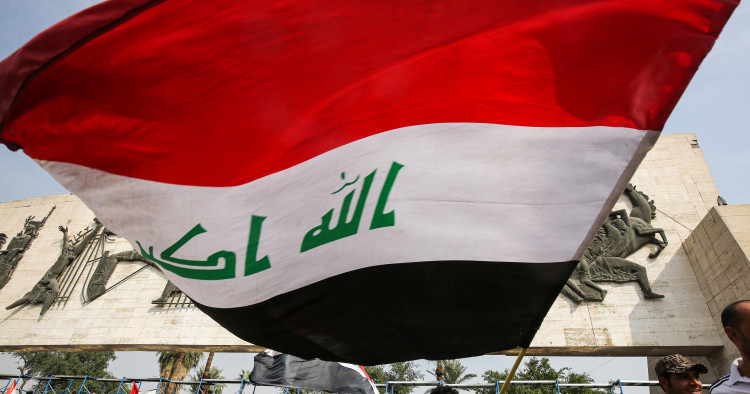Contents:
- The transformative geostrategic consequences of the US invasion of Iraq
- America’s interest in promoting Iraq’s regional integration with its neighbors
- Iraq and the naivety of change, 20 years on
- Internal pressure and external influence are transforming Baghdad-Erbil relations
- Promoting human rights is hard, slow work
- Three keys to maintaining strong US-Iraq military ties
- The future of CT operations in Iraq
- The Tehran-Baghdad-Washington triangle
The transformative geostrategic consequences of the US invasion of Iraq
Paul Salem
President and CEO

-
The U.S. invasion of Iraq dismantled most of the institutions of the Iraqi state, and attempts to rebuild them were undermined by sectarianism, corruption, and civil war; though, the country is in a better place today than post-Arab-Spring Syria or Libya.
-
At the regional level, the war benefitted Iran and Israel, removing their main enemy from the map, while also providing fuel for terrorist groups, and ended up being a strategic loss for the U.S.
The U.S.-led invasion of Iraq 20 years ago has had profound consequences for Iraq itself, for the Middle East, and for U.S. influence and credibility.
For Iraq itself, the invasion not only toppled the Saddam Hussein regime but also dismantled most of the institutions of the Iraqi state — particularly the military — leaving a near-total institutional vacuum for many years. Attempts to rebuild robust state structures faltered as sectarianism, corruption, and civil war took their toll. It is an open question as to how Iraq would have evolved internally if the 2003 invasion had not taken place; but seeing what happened during the Arab Spring eight years later, a popular uprising may well have broken out in Iraq, just as ones did in neighboring Syria and in Libya. Of course, seeing where Syria and Libya are today, it might be fair to say that Iraq ended up in a better place when it comes to basic elements like an inclusive political system, a (low) functioning state, and a pathway forward — something that notably cannot be said in the other two cases.
At the regional level, the war benefitted two main players: Iran and Israel. For Tehran, the invasion removed its most serious Middle Eastern enemy, the Saddam regime, and replaced a hostile, Sunni-dominated Iraqi government with a friendly, Shi’ite-dominated one. This enabled Iran to extend its proxy forces into Iraq, which proved particularly beneficial when the Bashar al-Assad regime faced an armed uprising in Syria: Iran could, thus, deploy its proxies into the Syrian theater from both Lebanon and Iraq to support Damascus.
The invasion of Iraq was encouraged by Israel and pro-Israel groups in Washington, as Saddam’s army had attacked Israeli civilian targets with Scud missiles during the First Gulf War. The Jewish state in early 2003 still saw Saddam’s Iraq as its main military threat. The war wiped the Iraqi army off the map and put an end to any speculation about whether Baghdad had clandestine nuclear and chemical weapons programs — something that had worried Israel before and impelled them to bomb the Osirak reactor in 1981.
Another major beneficiary of the Iraq war was al-Qaeda and the armed jihadist movement, a part of which later morphed into the Islamic State. Previously confined largely to the Afghanistan-Pakistan theater, al-Qaeda leapfrogged into the Iraqi arena, fighting alongside disenfranchised Sunnis against the U.S. occupation and attracting fresh fighters from around the world. The movement became a major force in Iraq, which, after the uprising in Syria in 2011, spilled across the border to establish the Islamic State of Iraq and Syria — ISIS.
The Iraq war proved a strategic defeat for the United States on several levels. First, while its military performed impressively in the first days of the invasion (in ways that Russian President Vladimir Putin thought he could emulate 19 years later), U.S. forces became deeply mired in Iraq (as well as Afghanistan), unable to turn a quick military victory into a lasting political one. This decades-long over-engagement in the Middle East focused the U.S. military toward counterinsurgency operations and away from the high-tech and multi-domain competition required to contain a rising China. Second, the invasion drained U.S. political capital and credibility in the region; other than Israel, America’s other Middle Eastern friends — including the main Arab countries and Turkey — had all strongly opposed the invasion. They were proven right, as the war greatly strengthened Iran, introduced a new wave of region-wide sectarian tension and conflict, and plunged Iraq into considerable turmoil. Washington would face the consequences of this loss of credibility when it sought regional solidarity in opposing Russia’s 2022 invasion of Ukraine; the response frequently was, “The U.S. illegally invaded Iraq two decades ago, and under false pretenses, so you have no moral leg to stand on.”
In the wider picture, the war also gave a bad name to democracy promotion in the Middle East, as it was brought on the backs of U.S. tanks. Interestingly, however, pro-democracy sentiments survived this tarnishing and erupted quite impactfully during the Arab uprisings that started in 2011, and continued — e.g., in Sudan, Lebanon, and even Iraq — through to the next decade.
Follow on Twitter: @paul_salem
America’s interest in promoting Iraq’s regional integration with its neighbors
Brian Katulis
Vice President of Policy

-
Bilateral U.S.-Iraq cooperation in the areas of economics, energy, culture, technology, health, and environment has not yet met its full potential, but these efforts remain robust.
-
One area where the U.S. could step up its diplomatic engagement is to play a more active role in helping link Iraq’s economic and energy future to its neighbors in the GCC as well as to Egypt and Jordan.
One consistent critique of U.S. policy on Iraq during the past two decades is that it has been heavily militarized, strongly focused on what the Pentagon does and underutilizing our diplomatic and economic policy tools. After years of vociferous, partisan debates about the U.S. military footprint in Iraq and whether it was essential to pull all of our troops out as President Barack Obama did in 2011, the United States currently maintains a modest presence of 2,500 uniformed personnel inside of the country, offering support and training to Iraqi forces. Few Americans seem to notice or care about this continued troop presence these days, even after high-profile visits like that of U.S. Defense Secretary Lloyd Austin to Iraq earlier this month.
In addition to ongoing security cooperation and support, U.S-Iraqi ties are shaped by a comprehensive bilateral strategic framework agreement, signed in 2008, that outlines a wide range of areas for collaboration between the two countries in economics, energy, culture, technology, health, and environment, among others. Most observers readily admit that bilateral cooperation in these other spheres has not yet met its full potential, but efforts on these fronts remain robust. A U.S.-Iraq Higher Coordinating Committee met last month to discuss the status of ongoing cooperation and to look for ways to expand ties. And U.S. ambassador to Iraq Alina Romanowski recently outlined in some detail the economic aspects of this relationship in a speech to the U.S.-Iraq Business Council.
One area where the United States could step up its diplomatic engagement is to play a more active role in helping to link Iraq’s economic and energy future to that of its neighbors. In particular, this means promoting stronger linkages between Iraq and the countries of the Gulf Cooperation Council (GCC) as well as Jordan and Egypt. The U.S. has already collectively engaged this group of states on President Joe Biden’s visit to the Middle East in the summer of 2022, where he delivered a speech to the GCC+3 and outlined areas for regional cooperation.
Washington should look to create new mechanisms to foster Iraq’s integration with the region. It could model these efforts along the lines of what it is already doing in the Negev Forum working groups, aimed at building stronger ties between Israel and some of the countries that normalized relations with Israel in recent years. In the case of Iraq, the U.S. could link some of the areas of bilateral cooperation outlined in the strategic framework agreement with a more defined regional effort that would help boost Iraq’s ties with countries like Saudi Arabia and Jordan. More seamless integration of Iraq into the region is crucial to ensure that this geo-strategically positioned country can take on the role of a “bridge” rather than a source of division and instability in the Middle East.
Follow on Twitter: @Katulis
Iraq and the naivety of change, 20 years on
Yesar Al-Maleki
Non-Resident Scholar
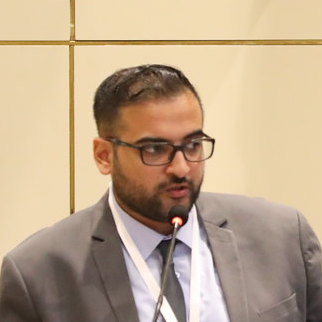
-
The painful reality is that Washington’s hastily cobbled together ethno-sectarian political system ended up doing the opposite of what it intended; and the regional domino effect was also the opposite of what the U.S. had hoped for, as Iraq became a cautionary tale that regimes could use to undermine the democratic desires of their own populations.
-
Ask any pundit for a single word to describe post-2003 Iraq and the answer would doubtless be “corruption”: Over the past 20 years, the Iraqi government saw $1.17 trillion in oil revenues enter its coffers, but Iraqis saw little in return.
I was 11 years old and cheering gleefully as I watched Saddam Hussein’s statue being toppled in Firdous Square on the TV screen. Sitting beside me was our fellow Iraqi neighbor, a Sunni, who shrugged at me while asserting defiantly that the Iraqi Army would take back Baghdad from the American olouj (or parasitic worms) in a matter of hours.
That never happened and the rest — mistakenly — is history.
For the rest of the world, March 20, 2003, marks the beginning of the ground invasion of Iraq, but for Iraqis, it was the start of a struggle to build a nation — one that is still ongoing today.
Back then, for Iraqis forced to flee prosecution from Saddam’s “Republic of Fear” and those who considered themselves, in one way or another, part of the opposition to the Baathist regime, it was a triumphant moment. Yet it also felt bittersweet. Immediately after the statue fell, the question arose: what happens next?
In the midst of the confusion, one could only think of abstract utopian ideas of a democratic Iraq rising from the ashes. Post-9/11 America was also keen to set an example for the Middle East. The era of strongmen had ended, and democracy, if not willingly taken up, could be induced.
The painful reality for Iraqis and Americans alike was that Washington’s hastily cobbled together ethno-sectarian political system, known as the muhasasa, ended up doing the opposite of what it intended. It made sectarian identity central to Iraqi politics rather than empowering Iraqis to truly choose those who could fulfill their aspirations of economic prosperity and political stability.
The domino effect in the region was also the opposite of what the U.S. had hoped for. The bloodshed and waves of recurring violence made Iraq a cautionary tale that regimes could use to undermine the democratic desires of their own populations. What good can democracy bring if it only leads to chaos?
Perhaps one gain Iraqis could take solace in after 2003 is the ability to freely choose their leaders — a right, it could be argued, they had never enjoyed since the formation of the modern Iraqi state. But what 20 years of muhasasa have created is a private club of elites that even a popular uprising by Iraqi youth in 2019 could not break into.
If anything, the politics the U.S. has given birth to in Iraq is not so dissimilar to that in the rest of the region. Iraq is ruled by a closed pool of muhasasa elites who are in the process of passing the reins of power on to a carefully selected second and third generation of party loyalists.
The electoral system, despite reforms that are soon to be reversed, has failed to convince non-politicized voters to cast their ballot. In the last parliamentary elections in 2021, only 44% of those eligible to vote did so.
The difficult year that it took Iraq’s politicians to form a government after the elections almost brought the country to its knees. If anything, that only proves how disconnected the political class is from the needs of the public — a dynamic that is not likely to change anytime soon.
The Iraq War was not merely an adventure in over-simplification, false claims, and gross miscalculations, it was also a campaign of financial exhaustion. Combined spending by the U.S. Defense and State departments on the country to 2020 amounted to nearly $2 trillion.
For Iraq, the cost is ongoing. It can rightfully be argued that Saddam and the Baath regime were corrupt and monopolized control of the country’s economic resources. The post-2003 “New Iraq” needed to set a better example. Sadly, that has not been the case.
Ask any pundit for a single word to describe post-2003 Iraq and the answer would doubtless be “corruption.” In 2021, former Iraqi President Barham Salih said that at least $150 billion had been stolen and smuggled out of the country since 2003. If anything, that’s an underestimation.
In the run-up to the war, those of us who were so eager to see Saddam toppled argued that we would even be happy to split the revenue from every barrel of oil with America if that was the price to be paid. Those who opposed the war often saw it as Vice President Dick Cheney’s crusade for oil — what British Prime Minister Tony Blair liked to call the “the oil conspiracy theory.”
The fact is that black gold played and continues to play a definitive role in shaping Iraq’s economy. In 2003, when U.S. soldiers left every government institution in Baghdad an easy target for looters but stood guard outside the Ministry of Oil, Iraq only made $8 billion in oil revenues. Last year, it made around $116 billion.
Throughout those 20 years, the Iraqi government saw $1.17 trillion in oil revenues enter its coffers, but Iraqis saw little in return. According to Salih’s estimate, Iraq lost a mere 12.8% of that total to theft. But where did the rest of the money go? Electricity is still unreliable, like it was during the era of sanctions in the 1990s, and the rest of the country’s infrastructure and public services are lacking and dilapidated despite years of Iraqi government spending and U.S. and international aid.
As for grabbing Iraq’s oil, former President Donald Trump was right: The victor, after all, did not grab the spoils. ExxonMobil entered the country in 2009 and after years of decrying the tight terms offered by the Iraqi government, is now in the process of exiting entirely. Meanwhile, Chinese firms are steadily expanding their footprint in Iraq’s oil industry.
While 20 years have passed since President George W. Bush decided to change the regime in Iraq, the consequences — whether political, economic, or social — are still felt by Iraqis and those across the Middle East today. It is no exaggeration to say that the world as we know it now has been scarred by the war.
Washington’s policy in the Middle East has since become more cautious, causing dismay among regional partners and allies, who, prior to 2003, saw America as a reliable security partner. All U.S. presidents and candidates after Bush have sought to distance themselves from the decision to invade or for having ever voiced support for regime change or nation building in Iraq or anywhere else.
Iraq has become the embodiment of the naivety of change. For Iraqis, they continue to be stuck with a political system that has bred corruption, mismanagement, and desperation while falsely promising them representation; for Americans, Iraq remains a cautionary tale of misjudgment and hubris.
Follow on Twitter: @yesar
Internal pressure and external influence are transforming Baghdad-Erbil relations
Shahla Al-Kli
Non-Resident Scholar

-
The Federal Government of Iraq and the Kurdistan Regional Government have long had a strained relationship; but in recent years, there have been signs of a thaw, due to both internal and external pressures.
-
Changing calculations regarding regime stability after October 2019, the new political dynamic ushered in by the October 2021 elections, the recent Saudi-Iran deal, and U.S. efforts to mediate between Baghdad and Erbil and curtail Iranian influence have all played a role in this.
The post-Saddam Hussein Federal Government of Iraq (GOI) has long had a strained relationship with the Kurdistan Regional Government (KRG). A fluid balance of power has continuously shifted between the two sides, yielding tactical actions and temporary fixes. However, in recent years, there have been signs of a thaw in relations, due to both internal and external pressures.
Internally, Baghdad has realized that the federal government cannot continue shelving protracted problems, while the Iraqi public demands a focus on service delivery, infrastructure, investment, and the creation of job opportunities rather than sectarian and identity politics. The mass public demonstrations that began in October 2019, known as the Tishreen movement, have shaken the political elite and promoted a new thinking about managing Iraq’s politics.
Also internally, the early elections of October 2021 exposed another pressure on the system as it yielded a new political situation, in which the Kurdistan Democratic Party (KDP) had the most important role in advancing the government formation process after the withdrawal of the Sadrist movement. The head of the KDP, Masoud Barzani, agreed to withdraw the party’s candidate for the presidency, unlocking a deadlock and paving the way for the formation of Mohammed Shia al- Sudani’s government, led by the Shi’a Coordination Framework (SCF), after a thorny year-long process and severe intra-Shi’a conflict that threatened to slip into full-fledged civil war. The KDP’s support stipulated important concessions from the SCF government, which shifted the relations between Baghdad and the KRG toward a path of long-term solutions instead of short-term tactical fixes that typically don’t hold up.
Baghdad and the KRG are currently at odds over several issues, including the Kurdistan region’s share of the Iraqi budget, the distribution of oil revenues, the status of Kirkuk and the disputed territories, and the military realignment of the Kurdish forces (Peshmerga) and the Iraqi Army in Kirkuk and other areas outside of the KRG’s administrative control. These issues have translated into tedious political negotiations over activating the implementation of constitutional article 140, the realignment of the Peshmerga, the return of the KDP to its offices and buildings in Kirkuk, the implementation of the Sinjar Agreement, and legislation in the Iraqi Council of Representatives (ICOR) on the budget and the hydrocarbons law. Sudani’s government program included promises to take steps to solve these issues, and the program was subsequently voted on by the ICOR, turning it into a law that has to be abided by all parties.
In recent weeks, there have been a few positive steps toward fulfilling the promises of the government program. Prime Minister Sudani announced that his government had reached an agreement to end the dispute between Baghdad and Erbil over the Kurdistan region’s oil revenues, the day after the Ministry of Finance in the region received 400 billion dinars from Baghdad to finance the salaries of employees there. The agreement, as PM Sudani explained, also included “for the first time […] an agreement that the oil revenues of the region will be deposited in one account, and the prime minister of the region and the prime minister of the federal cabinet will be authorized to monitor the account, and there will be a committee that will submit its recommendations to the federal prime minister to take the appropriate decision.” In addition, the Iraqi government announced that the Council of Ministers approved a three-year federal budget and referred it to the parliament for discussion, which is the first time that the federal budget has been approved for three consecutive years. The three-year federal budget for 2023-25, if voted on by parliament, will be an important stabilization mechanism for relations between Baghdad and Erbil, as it will minimize the polarization and populist politics that flare up every year during discussions over the budget. It is as yet unclear whether the legislation process for the draft budget law will be smooth, however.
In addition to the internal factors, there are two major external dynamics pressuring Baghdad to adhere to its political agreements, not only with the Kurds but with the Sunnis too. First and foremost is the recent China-brokered Saudi-Iranian agreement that stunned the world, including Iran’s political and military proxies in Iraq. The agreement is widely viewed by the Iraqi public as having sidelined the Iranian-backed militias and showcased Tehran’s pragmatic approach to its interests in the region. This in and of itself has reined in the influence of hardline factions, especially the militias, in the SCF, and opened up space for Iraqi politics and political parties to breathe.
The second external dynamic is the United States’ active engagement in mediating between the KRG and Baghdad, and in containing Iran’s malign activities and meddling in Iraqi politics, especially in light of Iran’s support for Russia’s war against Ukraine.
Moving forward, these recent positive steps between the two governments still need to be followed up with practical actions if they are to provide a lasting solution — at least for the medium term, until the next elections. The major test for these positive steps will be the legislation of the three-year federal budget. If it goes ahead and polarization remains relatively minimal, then Iraq may well have a stable political process at least for the next three years.
Follow on Twitter: @ShahlaKli
Promoting human rights is hard, slow work
Robert S. Ford
Senior Fellow
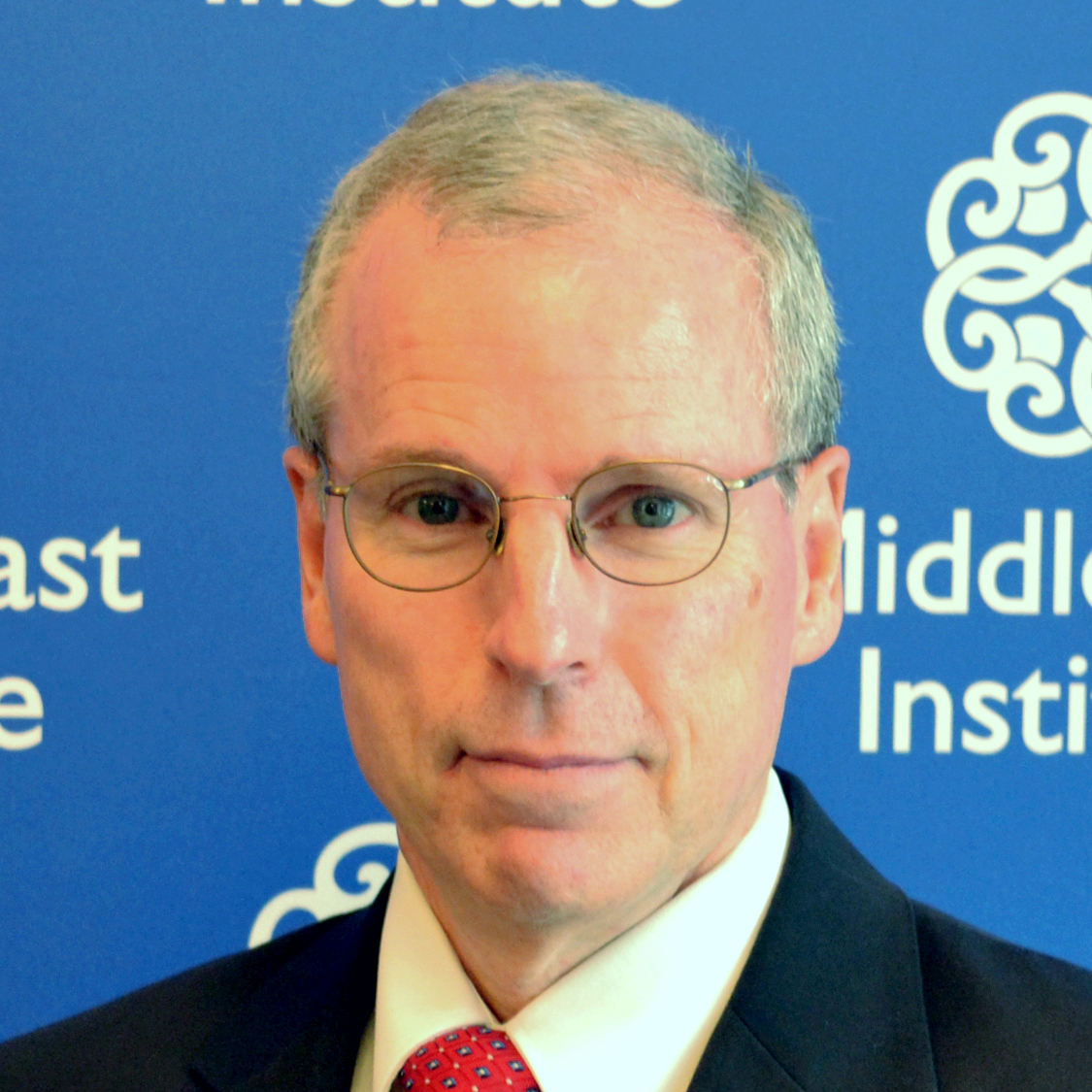
-
The first lesson must be to de-emphasize elections and instead help local leaders and communities build consensus around respect for the rights enumerated in the U.N. Universal Charter of Human Rights.
-
Promoting respect for human rights and democratic values must be a steady, long-term commitment, and success requires buy-in from host government authorities.
Here is one lesson from Iraq relevant today: Promoting respect for human rights and democratic values is a hard slog. It’s easy to organize an election, but elections are not helpful in a society recently scarred by dictatorship and violence. We had local and national elections in Iraq almost every year between 2005 and 2010, but they didn’t stop the civil war, because political and security actors didn’t respect basic human rights. The first lesson must be to de-emphasize elections and instead help local leaders and communities build consensus around respect for the rights enumerated in the United Nations Universal Charter of Human Rights. Pressing hard for freedom of thought and expression, the right to peaceful assembly, and basic rule of law, including a halt to arbitrary detention and torture in detention, are building blocks to successful democratic transition that we in our rush too often ignored in Iraq. We had plenty of taxpayer money to promote the understanding of such rights, but another lesson is that in fractured societies the absorptive capacity of civil society is limited. We wasted millions of dollars on charlatans and useless initiatives. Instead, promoting respect for human rights and democratic values must be a steady, long-term commitment requiring, dare I say it, strategic patience rather than immediate boatloads of money.
And success requires buy-in from host government authorities. On this we failed badly in Iraq. Amid murderous terror attacks there were also constant acts of sectarian violence committed by Iraqi security forces, especially corrupt police and counter-terrorism forces. We trained and equipped those forces, and we were well aware of the abuses. Rarely did we demand accountability. Our focus was on counter-terrorism and counter-insurgency, not human rights. We kept funneling in military assistance — $25 billion in total — despite horror stories on the streets and in Iraqi detention centers. We didn’t address this problem when we had tens of thousands of troops in Iraq; it is ridiculous to think, as some still do, that leaving a small military force in Iraq after 2011 somehow could have rooted out the abuse and corruption that enjoyed high-level Iraqi political support.
That abuse and corruption, of course, led to the welcome Islamic State fighters received in many western Iraqi communities in 2013 and 2014, which underscores another lesson. American officials chose to vigorously support a prime minister we knew was corrupt, driven by sectarian politics, and who justified all manner of human rights violations. We pressed other Iraqi politicians hard to back his new term in 2010. We did so because we were in a hurry to see a new Iraqi cabinet seated. We thus unintentionally ensured that American forces, withdrawn at the end of 2011, would have to return in 2014 to help halt another round in Iraq’s civil war. We should have let Iraqi politicians slowly, laboriously negotiate a deal on a new prime minister and cabinet. We can and should decide whom we cannot work with in a foreign government, but rarely do we ever understand local history and politics well enough to determine who should be a foreign country’s new leadership. Our respecting the human rights and democratic norms of foreign countries also means we respect their processes and their public’s free choices.
Follow on Twitter: @fordrs58
Three keys to maintaining strong US-Iraq military ties
Katie Crombe
Non-Resident Scholar

-
The ability of Iraq to continue its trajectory toward lasting security relies heavily on the formidable two-decades-long relationship between the Iraqi Security Forces and the U.S. and allied militaries, one built on incremental improvements, trust, and communication.
-
As the ISF takes the driver’s seat in the counter-terrorism campaign against ISIS, direct communication between partner militaries at every command echelon is critical to future success.
The 2022 National Defense Strategy positions partners and allies at the forefront of self-defense, regional stability, and a broader global security architecture. The emphasis on partners and allies goes beyond burden sharing and extends to the unmatched competencies, perspectives, and understanding that partner forces bring to both the intellectual debate and the operational fight. Within this global network, few partnerships have been as heavily scrutinized as the one between the United States and Iraq over the past 20 years. Two decades on, however, the relationship is one of pragmatism and perseverance, ushering in an era of peace and potential prosperity after two decades of turbulence. The ability of the Republic of Iraq to continue its trajectory toward lasting security relies heavily on the formidable relationship between the Iraqi Security Forces (ISF) and the U.S. and allied militaries, one built on incremental improvements, trust, and communication.
Don’t make perfect the enemy of the good; persistence pays off. In building enduring relationships with partners, the U.S. should focus on incremental improvements to partner force capability and capacity, rather than large-scale overhauls and advancements. The ISF of 2023 is a professional, proficient, and seasoned fighting force, leading the campaign against the Islamic State in Iraq. The ISF’s ability to absorb new training, incorporate new equipment, and execute new strategies is far superior to the ISF of 2011 following the U.S. withdrawal. A decade of persistent training and operational experience brought about this change, marked by incremental improvement rather than large-scale, rapid overhauls in personnel and equipment structures.
Trust is the foundation of any relationship; don’t take each other for granted. Although the political winds may change, military partnerships can and should weather such shifts. The Iraqi- U.S. military partnership is stronger than ever because of the trust built through joint operations, intelligence sharing, and open dialogue. The U.S. military’s value to the ISF manifests through dispassionate contributions to Iraqi security, providing frank and honest assessments of the growth and evolution of the ISF as leaders in the regional security architecture. Creating an environment that fosters respectful truth-telling is a powerful antidote to external actors that base relationships on fear, intimidation, and misinformation.
Communication is paramount; consistency is key. Once a trusting relationship is established, direct communication of capability, will, and intent are the surest guarantors of success. Although language and cultural barriers are inevitable, direct statements can overcome them, alleviating the guessing game prevalent in partnered operations. As the ISF takes the driver’s seat in the counter-terrorism campaign against ISIS, direct communication between partner militaries at every command echelon is critical to future success. The U.S. partner forces must be clear in their capability, will, and intent regarding training, equipping, and enabling operations so that the ISF can plan accordingly, identifying and mitigating gaps in their own capability, will, and intent. The fight against ISIS succeeded because of each partner’s ability to fill in the gaps of the other, and we must ensure this communication remains strong.
The professionalism of the ISF provides the foundation for a peaceful and prosperous Iraq. The relationship between the United States and Iraq has proven formidable despite internal and external challenges and will remain so if each military commits to a future marked by incremental improvements, trust, and honest communication.
The future of CT operations in Iraq
Mick Mulroy
Non-Resident Senior Fellow and Co-Director of the Yemen Steering Initiative
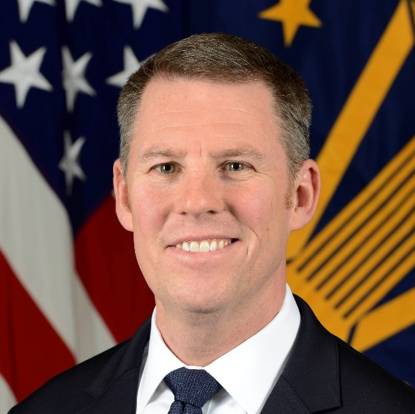
-
The continued U.S. presence and advisory role in Iraq is essential to ensure ISIS does not regroup as well as to build up the Iraqi military’s capabilities against Iranian proxy forces.
-
Last year, with a relatively minimal footprint in Iraq and Syria, the U.S. helped facilitate the elimination of hundreds of ISIS fighters from the battlefield.
The recent trip to Iraq of United States Secretary of Defense Lloyd Austin, in addition to Chairman of the Joint Chiefs of Staff General Mark Milley’s visit to Syria, sent an important and vital message to the region that the fight against the Islamic State is not over. The U.S. senior officials said Washington is committed both to ISIS’s defeat and to backing our regional partners. This is important as many Middle Eastern governments have questioned our continued interest in this part of the world.
Our partners in the ongoing fight against ISIS in Iraq include the central government in Baghdad, its military, and the Kurdish military forces of the autonomous Iraqi Kurdistan Region, the Peshmerga. The U.S. Armed Forces support this effort, and at the Iraqi government’s request; but they are notably not there in a combat role.
Our presence and advisory mission are essential to ensure ISIS does not regroup and take over new territory as well as to build up the capabilities of the Iraqi military. Those capabilities are needed with a neighbor such as Iran, which seeks to control Iraq through its use of proxy forces.
The U.S. military presence in Iraq is also key to our operations across the border in Syria, where we work closely with the Syrian Defense Forces (SDF). Our SDF partners were primarily responsible for defeating the so-called ISIS “caliphate” in that country, which subjugated over a million civilians in a territory the size of West Virginia.
In a recent visit to Ghwayran prison in the city of Hasakeh, Syria, the commanding general for U.S. Central Command (CENTCOM), Michael Kurilla, stated, “Between those detained in Syria and Iraq, it is a veritable ISIS in detention. If freed, this group would pose a great threat regionally and beyond.” If the U.S. abandoned the mission and the partners in the region, we would have little say in the disposition of those detained at these facilities.
Recent pushes in Congress to withdraw our forces from the region were defeated by a vote of 321 against 103. This is a fairly large margin but one that should cause concern. We must ensure that those who are against a continued presence get the information they need to understand its importance.
Last year, with a relatively minimal footprint in Iraq and Syria, the U.S. helped facilitate the killing of 466 ISIS terrorists and the detention of 250 others. We did this primarily in a support role, only using direct action against the most senior ISIS leaders. These operations have resulted in the killing of ISIS leader Abu Bakr al-Baghdadi and, more recently, senior ISIS leader Hamza al-Homsi and senior operational planner Ibrahim al-Qatani.
Withdrawing prematurely from this region back in 2011 led to the rise of the ISIS caliphate in the first place. Our presence there today is limited and exposure to harm relatively small. Yet the continuation of this mission is critical to ensure that ISIS does not resurge and to provide a counterweight to the malign activities of Iran in Iraq. The United States needs to be the partner it expects others to be, which in part means being prepared to stay in the fight longer than those that are fighting against us.
Follow on Twitter: @MickMulroy
The Tehran-Baghdad-Washington triangle
Alex Vatanka
Director of Iran Program and Senior Fellow, Black Sea Program
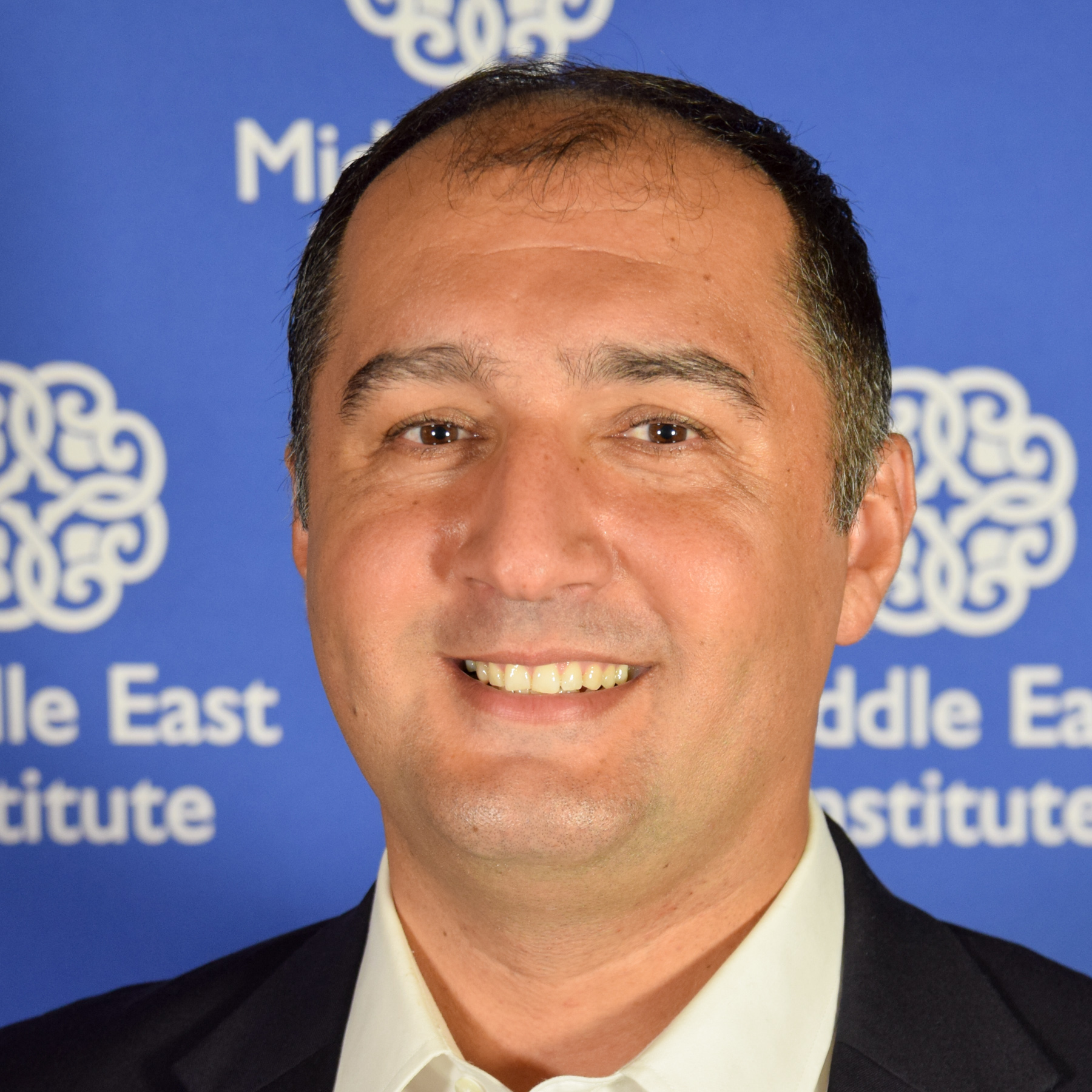
-
Tehran tried to strike a careful balance in its response to the U.S. invasion of Iraq, ensuring that the American project in Iraq would fail, while avoiding direct confrontation with Washington.
-
But Iran’s militant Islamist message that mobilized so many Iraqi Shi’a youth to join pro-Iran militias in the aftermath of the U.S. invasion no longer resonates the same way 20 years on.
The 2003 U.S. invasion of Iraq presented policymakers in Tehran with the need to make a crucial decision. Iran had already, in 2002, been labeled a member of the “Axis of Evil” by the George W. Bush administration. Tehran was therefore justified in fearing it might be Washington’s next target as the post-9/11 United States looked to quash its rivals in the Middle East. Looking back over the last 20 years, Tehran tried to strike a careful balance in its response to the U.S. invasion of Iraq, ensuring that the American project in Iraq would fail, while avoiding direct confrontation with Washington. That is more or less where Iranian policy stands today: determined but agile and patient.
The U.S. intelligence assessment is that Tehran abandoned its quest for nuclear weapons in 2003 as the U.S. invaded Iraq. This is also the year when Iran’s nuclear program first became subject to international scrutiny. Tehran opted to hold talks with major European powers to make sure its remaining nuclear program did not become a pretext for U.S. military action.
These talks gave rise to cycles of protracted diplomatic negotiations on the nuclear file that are still ongoing to this day. Meanwhile, as it had removed the threat of a direct U.S. miliary response, Tehran moved forward aggressively with its efforts to undermine the American agenda in Iraq, backing a long list of pro-Iran political forces in Baghdad. Once its position was sufficiently strong, Iran even created, armed, and indoctrinated anti-U.S. Iraqi militias that carried out attacks on U.S. forces.
But Tehran also maintained as much deniability as possible. In doing so, it had two objectives: At a minimum, it aimed to bog the U.S. down in the Iraqi theater so it would have fewer resources and less appetite to expand President Bush’s “freedom agenda” into Iran. At a maximum, Tehran could use this Iraqi bridgehead to spread its influence into the broader Arab world.
And yet, when conditions called for it, Tehran was inclined to meet the U.S. halfway, including holding rare direct talks with Americans on Iraq’s political future, as it did in 2008. This sort of Iranian-American dialogue in Iraq is the reason why many Arab commentators have over the years concluded that Tehran and Washington have come to some kind of undeclared understanding to coexist in the Iraqi theater, with neither side genuinely seeking to squeeze the other out.
This possibility fits very well with Iranian Supreme Leader Ali Khamenei’s belief in “No war, no negotiations” with the U.S., while remaining on the “path of resistance” against Washington. “We don’t seek a war, and they don’t either. They know it’s not in their interests,” he has said. It’s a managed power competition, although at times this delicate co-existence has come close to crumbling. This was most notably the case when, in 2020, the U.S. assassinated Qassem Soleimani, the mastermind of Iran’s regional agenda, and Tehran retaliated by firing ballistic missiles at bases hosting U.S. troops in Iraq.
In Washington, one often hears that the U.S. made the mistake of “giving Iraq to Iran” when it removed Saddam Hussein. No doubt, the U.S. invasion was a golden opportunity for Tehran. Not only is Iran a top political powerbroker in Baghdad today, but Iraq has also become a top economic partner for the Iranians. The U.S. still has plenty of sway over Iraq though, and Tehran accepts this reality. Most recently, Washington has pressed Baghdad to reduce Iran’s access to American dollars through Iraqi banks. The Iraqis have acquiesced, and the Iranians have made no real fuss, even as they desperately need the reported many billions of dollars in Iranian funds frozen in Iraqi banks due to U.S. sanctions.
This Iranian-American power parity inside of Iraq is also influenced by the fact that Tehran’s political model — that of an Islamist theocracy, or velayat-e faqih — has many Iraqi detractors, and this opposition is only likely to grow. Iran’s militant Islamist message that mobilized so many Iraqi Shi’a youth to join pro-Iran militias in the aftermath of the U.S. invasion no longer resonates the same way 20 years on. Unless the Iranians can recalibrate their stance, the U.S. still might be the one that shapes Iraq’s future the most in the long run.
Follow on Twitter: @AlexVatanka
Photo by AHMAD AL-RUBAYE/AFP via Getty Images
The Middle East Institute (MEI) is an independent, non-partisan, non-for-profit, educational organization. It does not engage in advocacy and its scholars’ opinions are their own. MEI welcomes financial donations, but retains sole editorial control over its work and its publications reflect only the authors’ views. For a listing of MEI donors, please click here.













